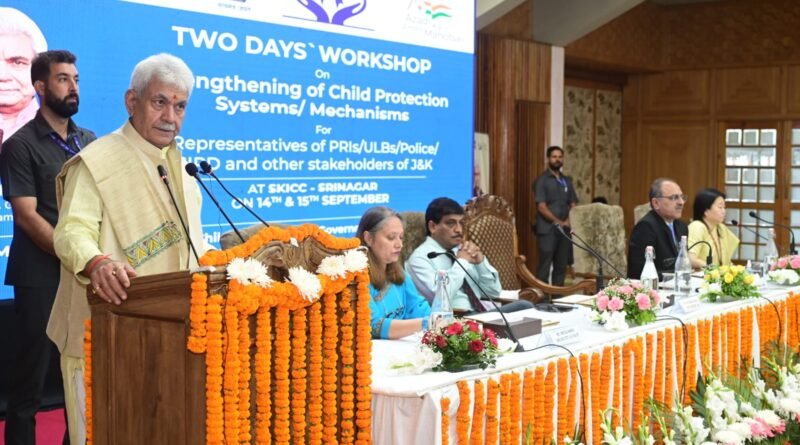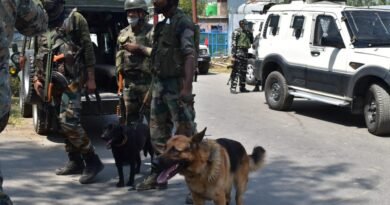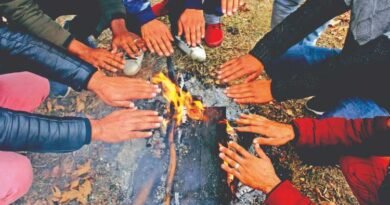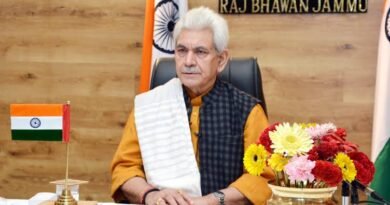Lt Governor inaugurates 2-day Workshop on strengthening Child Protection System & Mechanism in UT of J&K
Representatives of PRIs, ULBs and Police to be sensitized & trained on critical aspects of Child Protection during the first such campaign organised by Ministry of Women & Child Development in the country
For many decades, our children did not get the childhood they deserve: LG Sinha
Conflict profiteers brainwashed our children and handed over stones in their hands. We have decimated that ecosystem and our children now carry laptops, tabs & contributing in nation building: LG
We are committed to secure a blissful childhood and to ensure supportive ecosystem for children which enables them to realize their true potential: LG Sinha
LG lauds Social Welfare Department for its innovative initiative to organise training programme for 15,000 persons in 2023-24
Childhood blossoms in a vibrant environment of home, hence institutional care should be the last option: LG Sinha
We have taken several initiatives including adoption through CARA and SARA to promote family-based non-institutional care of children: LG
LG calls upon public representatives, NGOs, community elders, religious leaders, youth clubs to join the fight against the drug menace
Adolescent drug abuse is one of the major areas of concern. We have adopted zero tolerance policy against drugs with a vision of drug-free J&K: LG
SRINAGAR, SEPTEMBER 14: Lieutenant Governor Shri Manoj Sinha inaugurated the two-day workshop for Sensitization/Training programmes for representatives of PRIs, ULBs, Police and other stakeholders to strengthen the Child Protection System and Mechanism in the UT of Jammu Kashmir.
This is the first such campaign organised by the Women and Child Development Ministry, Government of India in the country.
In his address, the Lt Governor expressed gratitude to the Ministry of Women and Child Development and lauded the Social Welfare Department for its innovative initiative which aims to organise training programme for 15,000 persons in 2023-24.
He said the training programme is the testimony to the commitment of the UT Administration to secure a blissful childhood and to ensure a supportive ecosystem for children which enables them to realize their true potential.
“For many decades, our children did not get the childhood they deserve. Conflict profiteers brainwashed them and handed over stones in their hands. We have decimated that ecosystem and our children now carry laptops, tabs and contributing in nation building,” the Lt Governor said.
Addressing the inaugural session, the Lt Governor highlighted the need to provide homes to the children living in institutional care and in street situation.
“I believe childhood blossoms in a vibrant environment of home, hence institutional care should be the last option,” the Lt Governor said.
He said the government has taken several rehabilitation and child care initiatives, and adoption through joint effort of Central Adoption Resource Authority (CARA) and State Adoption Resource Agency (SARA) has started that will promote family-based non-institutional care of children.
The Lt Governor also called upon public representatives, NGOs, community elders, religious leaders and youth clubs to join the fight against the drug menace.
Adolescent drug abuse is one of the major areas of concern. We have adopted zero tolerance policy against drugs and it is our collective responsibility to raise awareness and strengthen action to realize the vision of drug-free J&K, he said.
On the occasion, the Lt Governor asked the officials of the central government to consider the establishment of Vatsalya Sadan one each in Jammu and Srinagar.
Dr Arun Kumar Mehta, Chief Secretary J&K; Sh. Sanjeev Kumar Chadha, Additional Secretary, Ministry of Women & Child Development; Ms. Indra Mallo, Joint Secretary, Ministry of Women & Child Development; Ms Sheetal Nanda, Commissioner Secretary Social Welfare Department and senior officers from Central Government and UT Administration were present.
The inaugural session was attended by PRIs and ULB members, Police officials; Resource persons, representatives of Juvenile Justice Board, Judiciary, NGOs and other stakeholders.
No: PR/DI/23/1282/




